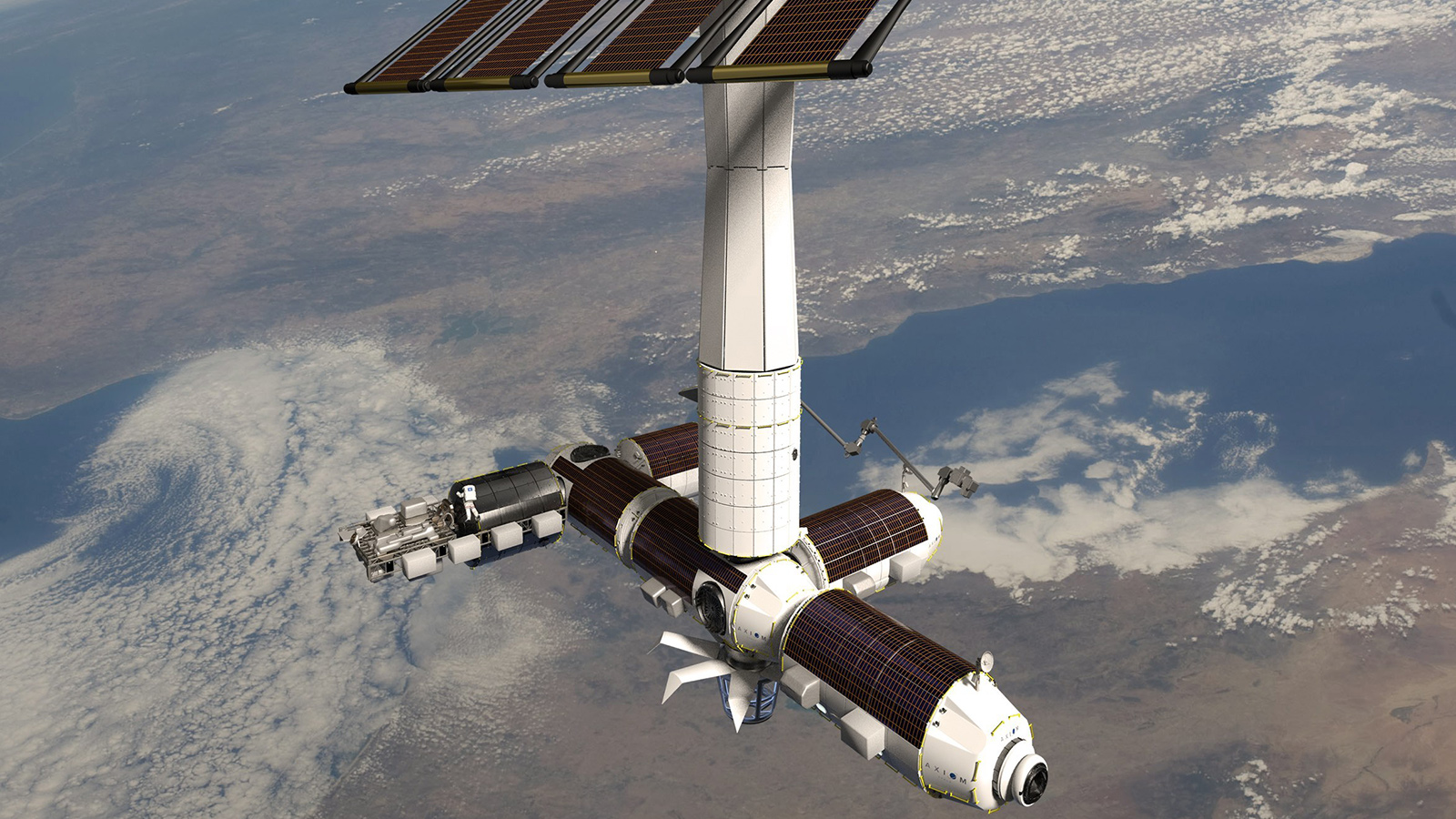Stay Up to Date
Submit your email address to receive the latest industry and Aerospace America news.
Company aims to go beyond ISS-type experiments
Imagine it’s 2028, and several commercially owned capsules are roaring toward low-Earth orbit, some carrying cargo, others eager tourists excited for their first trip to space. Their destination isn’t the International Space Station: It’s Axiom Station, a collection of cargo and habitat modules with multiple docking ports.
That’s the bright future Matt Ondler and his colleagues at Axiom Space are trying to achieve, but time is of the essence.
The company needs to have its modules ready in time to attach them to ISS for at least a couple of years of confidence building and market development before NASA stops operating the station. “It doesn’t do us any good to show up the day before” ISS is retired, “so we have to get there relatively early,” Ondler, chief technology officer at the Houston company, told me in an interview ahead of the virtual AIAA ASCEND conference.
The U.S. portion of the ISS is currently authorized to operate through 2024, but Axiom is counting on lawmakers to extend that to at least 2028 so that the company can foster the mix of government and commercial customers that will be needed to generate sufficient revenue for Axiom Station. Axiom doesn’t want its station to amount to ISS 2.0, an outpost with largely government-funded experiments. Along with private spaceflight missions aboard capsules including SpaceX’s Crew Dragon, Axiom anticipates that in-space manufacturing by private companies will constitute a significant portion of the new station’s revenue.
Axiom plans to demonstrate the safety of its station design by creating the Axiom Segment, a connecting node, a habitation module and one for experiments that will also have a windowed alcove for observing Earth. Plans call for launching these on SpaceX Falcon Heavy or Blue Origin New Glenn rockets. First to go up, in September 2024, would be the habitation module, funded in part by a NASA contract awarded earlier this year.
Once Axiom knows for sure that ISS will be decommissioned and deorbited, the company will make plans to separate and operate as the free-flying complex. More modules could be added, including one or more built by other companies as manufacturing outposts for various products.
“That’s our hope for the future is that there’s this incredible manufacturing and capability in low-Earth orbit,” Ondler said. “And not only in low-Earth orbit, probably in orbit around the moon and other places that we’re building stuff, and lots and lots of people are living and working in space.”
About cat hofacker
Cat helps guide our coverage and keeps production of the print magazine on schedule. She became associate editor in 2021 after two years as our staff reporter. Cat joined us in 2019 after covering the 2018 congressional midterm elections as an intern for USA Today.
Related Posts
Stay Up to Date
Submit your email address to receive the latest industry and Aerospace America news.




